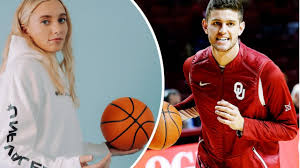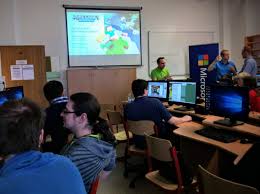For both aspects to be successfully combined, it is essential that there is direct coordination between all the parties involved.
Study and sports are essential aspects of any child or adolescent’s life. A good education is the best way to find a job, while regular exercise contributes to physical and mental well-being. But balancing both aspects isn’t always easy . Immersed in an increasingly hectic routine, where lack of time becomes the main obstacle, one of parents’ concerns is that their children’s academic results will worsen if they spend a certain number of hours a week exercising and competing.
“Of course, a high level of training can negatively affect academic performance, and in fact, it does. They often end up exhausted. Few elite athletes earn advanced degrees (bachelor’s, master’s, and/or doctorate), and they tend to leave academic life prematurely. Too many end up like broken toys,” says Julia Blández Ángel , professor of Body Expression Teaching at the Complutense University of Madrid and member of the Scientific Committee of the Physical Activity and Sports Sciences Research Foundation.
The key to avoiding this situation lies in being organized and efficient in the use of available time. “There are students who attend high-performance schools or have a more demanding competitive level, and this precisely gives them qualities that help them improve their grades, such as routine, discipline, hard work, or time management,” says Mario Andrés Candelas , a graduate in Pedagogy and a secondary and high school guidance counselor at Escuela Ideo.
Óscar Martínez de Quel is an example that it is possible to combine athletic success with a brilliant academic career or we can say, keep study and sports balance. Winner of two gold medals at the Karate World Championships—the first in 2002, while studying Psychology online—he holds degrees in Physical Education and Psychology, as well as a PhD in Physical Activity and Sports Sciences. “It’s a sacrifice, but it’s worth it. I’ve enjoyed my youth in a different way, but waking up every day with the hope of something to strive for keeps you going,” he says.
“It’s a sacrifice, but it’s worth it. I’ve enjoyed my youth in a different way.”
And she recalls an anecdote that perfectly defines her daily life: “One day after dinner, I sat down to watch TV, and my roommate asked me if I was okay because it was the first time I’d done that. I trained in the afternoon, had dinner, and then started studying.”
Read also: The ultimate guide to must-read technology books for everyone
Mutual benefit
A university professor for over a decade, Martínez de Quel is clear that sports provide multiple academic benefits, such as improved stress management and improved attention and memory, and emphasizes the term study and sports: “Every minute I spent in front of a book was worthwhile, and thanks to sports, my brain was like a sponge.” He also points out that various studies show that the best academic records correspond to children and adolescents who engage in regular physical activity. In his opinion, this is a two-way relationship, as academics are also good for sports. “I knew that on Monday, no matter what happened, I had to go to class and get back to training; that helps reduce the anxiety of the championship,” he says.
For Iván Martínez , now in his third year of secondary school and in the junior category of the Nassica de Calahorra swimming club, sport serves as an ally to “be in better mental health and relieve many stressful moments.” He trains 18 hours a week and, last December, broke the 14-year-old Spanish record in the 100-meter backstroke in Zaragoza. However, he has never prioritized the pool over the classroom. “You have to plan your entire day carefully. When I train, since I have less time in the afternoons, I usually get up early to study before going to school,” he explains. Study and sports is a perfect coordiantion for him.
“Organizational skills and efficient time management are essential for the student athlete”
But for the two occupations to be successfully combined, direct coordination between all parties involved is essential . “Synergies and collaborative processes must be generated between the educational center the student attends and the sports club where they train daily. This lack of coordination is what sometimes leads students to failure or to permanently abandon one of the two activities in which they participate,” emphasizes David López Aguilar , professor in the Department of Educational Didactics and Research at the University of La Laguna and tutor at the National University of Distance Education.
In this sense, he believes that one of the barriers to be overcome is “the lack of regulatory and legal protection that precisely indicates what flexibility measures can be implemented with these individuals,” because, otherwise, “we will continue to be under the goodwill of the professionals who work with high-performance student athletes and face possible feelings of rigidity due to the lack of a clear definition of what to do with their training curriculum.”
Parental support

In addition to communication between teachers and coaches, there’s a third essential element in the equation: the family environment . “Parents, especially when their children have great athletic talent, should review the messages they send,” warns David Llopis, sports psychologist, director of the Master’s in Sports Psychology and Coaching at Florida Universitaria and director of the Residency and Psychology Department at the Levante UD Football School. “Often, after their child has gone to class and trained, the first thing they ask when they see them is how the training went. With this, they unintentionally give their child the impression that they are more concerned about sports than their studies and make their childern to equally manage the study and sports”
Experts agree that it’s very important for students to continue their education so they always have an alternative and also to confidently face their future once they retire from sports. “High-level competition may prevent you from pursuing your studies as you’d like, but there are less demanding or distance learning options that allow you to progress with different planning. Having more time by dropping out of school doesn’t mean you’ll be better at sports,” Llopis emphasizes. As per experts’ point of view, study and sports go hand in hand in life, and students should not neglect any of them.










